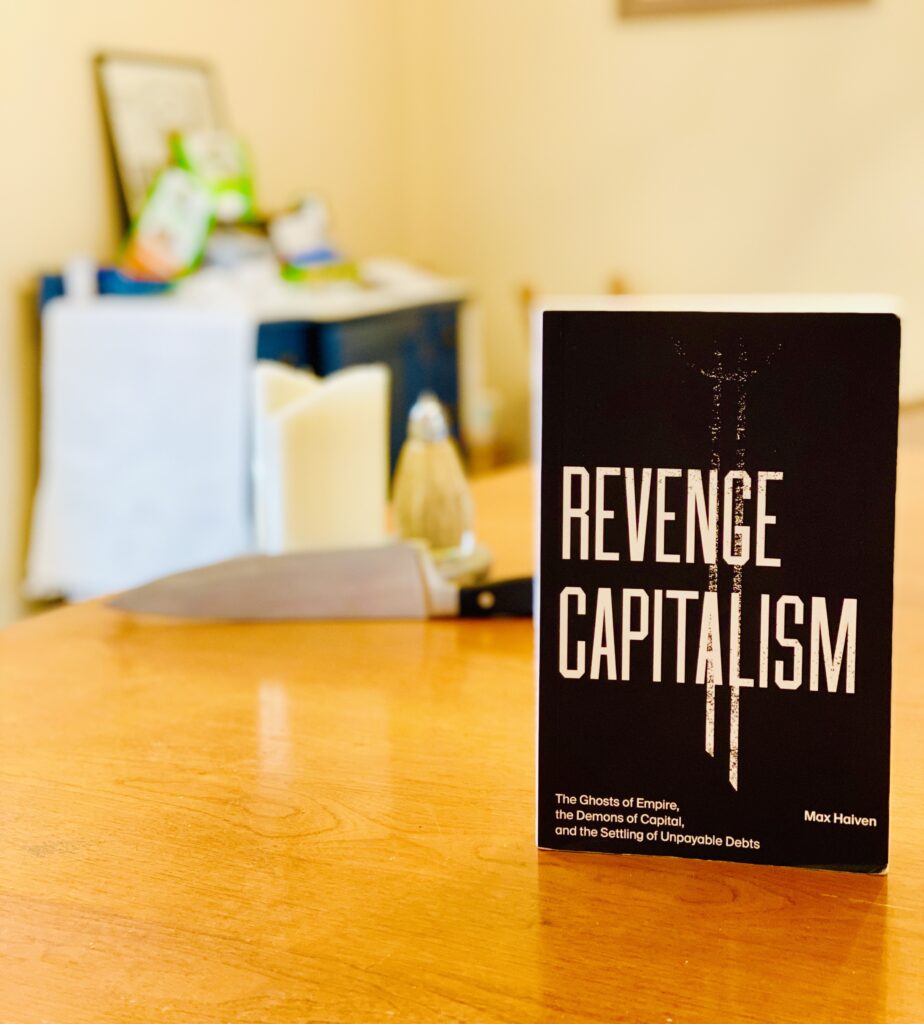
There’s a genre of scholarly left nonfiction which I think of as “capitalism and ____” which is organized around talking about capitalism as understood through some novel lens, with a specific focus, or highlighting some feature with hitherto underappreciated significance. I’ve read my share of these books, and I’m sure I’ll read more in the future, but these days I don’t necessarily go out of my way to seek them out – not because they are not useful or interesting, but because it feels more useful in terms of pushing the boundaries of my own understanding of the social world and of struggles to transform it to read a bit more expansively. That said, I’m glad a friend’s desire to loan each other books we’d already read brought this one into my hands. The book examines capitalism through the lens of revenge, both the structural and pre-emptive revenge built into how capitalism works (which wreaks such terrible violence on the oppressed and exploited), and the ways in which that violence catalyzes desires for revenge in those it harms. It argues that this dynamic has always been part of capitalism but that it has been enhanced by decades of neoliberalism, as demonstrated by all of the statistics that you could use to show sharper and deeper deprivation now than a few decades ago and by the social undercurrent of bitterness and anger that has grown (in some contexts, in some respects) since at least the financial crisis in 2008. The book distinguishes between that anger finding expression as desire for revenge versus cultivation of an avenging imaginary – a distinction that has some utility politically, but admittedly is a bit confusing rhetorically. In the former, discontent with the state of the world is displaced onto either empty fantasies of individual revenge that do little more than serve to make the unjust reality a bit more bearable while undermining the possibility of actual change, or it is directed into oppressive violence towards those already even more sharply harmed by the current state of things – particularly racialized Others, a la the global flourishing of Trumpian and other far-right politics in the last half decade. In the latter, the focus is not vengeful harm to those who benefit (or to those who can easily be scapegoated) but rather collective change that undoes the conditions which caused the initial structural violence. I particularly appreciated this book’s engagement with culture, and a materialist engagement at that – too often, “capitalism and ___” books do a poor job of that. Admittedly, the use of close readings of texts or works of art as a way to unearth broader social and cultural dynamics may not be to everyone’s taste, but they felt effective here. I also appreciated the breadth and depth of engagement with thinkers whose work focuses on the many axes of oppression that interlock with and through capitalist social relations – again, a lot of white marxist dudes do this poorly or superficially. Anyway, it’s not a book that speaks directly to questions of how to take action, but I do feel that it has made certain aspects of our current moment are a bit clearer to me, and I’m glad to have read it.
Originally posted by Scott on Goodreads.